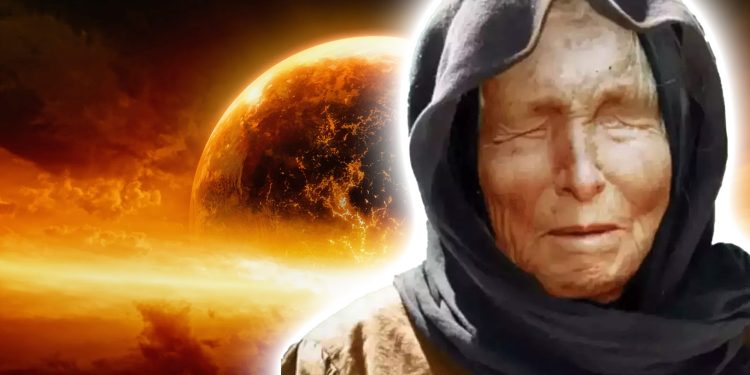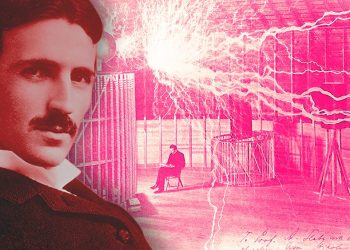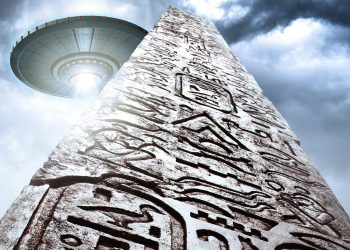Baba Vanga, a blind Bulgarian mystic, has garnered international attention for her supposed prophetic abilities. Known as the “Nostradamus of the Balkans,” she has made numerous predictions over the years, some of which have reportedly come true. One of her most intriguing and controversial forecasts is the date on which the world will end.
Baba Vanga’s Life and Prophetic Prowess
Born Vangelia Pandeva Dimitrova in 1911, Baba Vanga became blind at a young age after a terrible storm lifted her into the air and threw her into a field. Following this traumatic incident, she claimed to have developed psychic abilities and began making prophecies.
Baba Vanga allegedly made numerous accurate predictions throughout her life, including the 9/11 attacks, the 2004 Indian Ocean tsunami, and the rise of ISIS. Her alleged psychic powers have fascinated millions and attracted followers worldwide.
The Apocalyptic Prediction: 5079
According to Baba Vanga’s followers, she predicted that the world would come to an end in the year 5079. However, it is important to note that any scientific research or evidence has not corroborated this. It is solely based on her purported psychic abilities. There are no scientific facts we are aware of today that would indicate the world will indeed come to an end in 5079.
Skepticism Surrounding Baba Vanga’s Predictions
While some of her predictions appear to have come true, there is significant skepticism regarding the accuracy and legitimacy of her prophecies. Critics argue that her forecasts are often vague, allowing for multiple interpretations and that many of her predictions have not come to pass. For instance, she predicted that the 44th US president would be African-American, which came true with Barack Obama’s election. However, she also claimed he would be the last US president, which has since been proven false.
Furthermore, the scientific community largely dismisses the idea of psychic abilities, with no concrete evidence supporting their existence. In the case of Baba Vanga’s apocalyptic prediction, skeptics argue that it is purely speculative and not grounded in scientific fact.
The Role of Media in Amplifying Baba Vanga’s Predictions
The media has played a significant role in spreading and amplifying Baba Vanga’s predictions, often sensationalizing them to attract attention and generate interest. This has led to increased scrutiny and skepticism and the propagation of misinformation and conspiracy theories.
Comparing Baba Vanga’s Prediction to Other Doomsday Prophecies
Baba Vanga’s apocalyptic prediction is just one of many doomsday prophecies throughout history. From the ancient Mayan calendar, which many claimed predicting the end of the world in 2012 to modern-day preachers forecasting the apocalypse, humanity has long been fascinated by the idea of a cataclysmic event marking the end of life as we know it.
While these prophecies often generate widespread interest and fear, they have consistently failed to materialize. This highlights the importance of approaching such predictions with skepticism and relying on scientific evidence rather than unsubstantiated claims.
The Psychological Impact of Apocalyptic Predictions
Apocalyptic predictions, like Baba Vanga’s, can have significant psychological effects on individuals and society. The fear and anxiety generated by such prophecies can lead to panic, irrational behavior, and even mental health issues. And if you ask me, there has been enough of that in the last few years. We can use a break, at least for a while, right?
Baba Vanga’s Apocalyptic Prediction
Baba Vanga’s prediction that the world will end in 5079 is a fascinating and controversial claim that has captured the imagination of millions. However, it is crucial to approach this prophecy and others like it with skepticism and critical thinking. Critical thinking. It is imperative to use common sense.
While some of her predictions appear (I repeat appear) to have come true, many have not, and scientific evidence does not support her apocalyptic forecast. Furthermore, the media’s sensationalism of her prophecies has contributed to the propagation of misinformation and fear.
As we grapple with real-world challenges, such as climate change and geopolitical tensions, we must address these issues rather than dwelling on unproven and speculative predictions. By doing so, we can create a more informed and resilient society, better equipped to navigate the complexities of our world. This is especially important for the 21st century is the age of information, yet many people decide to remain uninformed.
Have something to add? Visit Curiosmos on Facebook. Join the discussion in our mobile Telegram group.











